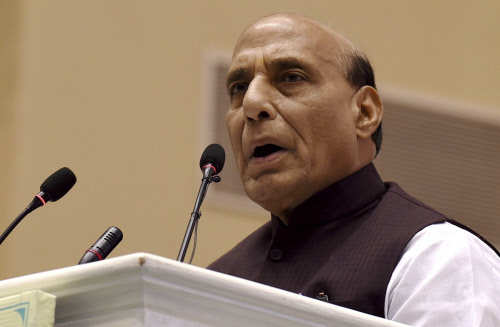
SOURCE: ET
The armed forces say they will be forced to seek waivers for certain products in the recently-announced negative arms import list if the domestic defence production industry fails to deliver in terms of quality standards and specified timelines. A cross-section of senior officers from the Army, Navy and IAF told TOI the negative list was “a welcome step” to boost the indigenous defence-industrial base (DIB) but is fraught with “a number of uncertainties” for the armed forces.
“Implementation of the list will have to be contingent on the success of the indigenization and production process for the specified weapons and ammunition. Operational military readiness cannot be sacrificed, or compromised, at the altar of indigenization,” said a senior officer.
The over 15-lakh strong armed forces are also in the process of “seeking clarifications” about the negative arms imports list because it broad-brushes certain categories of items. The policy, however, has been recently announced and its effects are yet to be fully evaluated in terms of what production capacities will be.
It was on August 9 that defence minister Rajnath Singh announced the acquisition of 101 weapon systems and platforms from abroad will be progressively banned from December 2020 to December 2025.
The negative list ranges from some types of ammunition, sonars, radars, artillery guns and assault rifles to missile destroyers, transport aircraft, light combat helicopters, wheeled armoured fighting vehicles and conventional diesel-electric submarines.
It does mark a significant step towards eventually getting India out of its strategically-vulnerable position of being among the world’s top two arms importers. “Yes, foreign arms supplies can be choked in times of emergencies. They are also very expensive. But then, the Indian defence industry has a long track record of dismal performance,” said another officer.
Army vice chief Lt-General S K Saini, just a few days ago, had said his force was more than ready and willing to fight with indigenous weapon systems but they must pass stringent quality checks and adhere to delivery timelines.
Experts say it is critical to systematically augment the domestic DIB, with a sustained R&D thrust on cutting-edge weapon technologies. For one, DRDO and its 50 labs, Ordnance Factory Board (OFB) and its 41 factories, the four defence shipyards and five defence PSUs have to be drastically overhauled. For another, the private sector has to incentivized to jump into defence production in a big way.
“Otherwise, whenever there is a national security crisis, like after the 2016 Uri terror attack or the 2019 Balakot air strikes, the armed forces have to inevitably go for emergency and fast-track imports to plug operational voids,” he added.
Contracts worth around Rs 24,000 crore were inked with countries like Russia, Israel and France after the Uri attack to build reserves for “10 days of intense fighting” with Pakistan. The ongoing military confrontation with China in eastern Ladakh has led to yet another similar scramble. The acquisitions in the pipeline range from Spice-2000 precision-guided bombs, Spike Firefly loitering munitions, Excalibur and APFSDS (armour piercing fin stabilized discarding sabot) ammunition to Spike anti-tank guided missiles, SiG Sauer assault rifles, man-portable air defence systems and different types of drones, as was reported by TOI earlier.
The Army is particularly worried about ammunition. TOI in May last year had reported that the force had sounded the red-alert over the unacceptably high number of accidents and casualties taking place in the field due to the poor and defective quality of ammunition being supplied for tanks, artillery, air defence and other guns by the OFB.
The government, on its part, is firmly pushing ahead with the “corporatization” of the OFB, which includes converting it into one or more 100% government-owned public sector corporate entities, to improve its functional autonomy, public accountability and efficiency as the main supplier of arms, ammunition and clothing to the Army.






